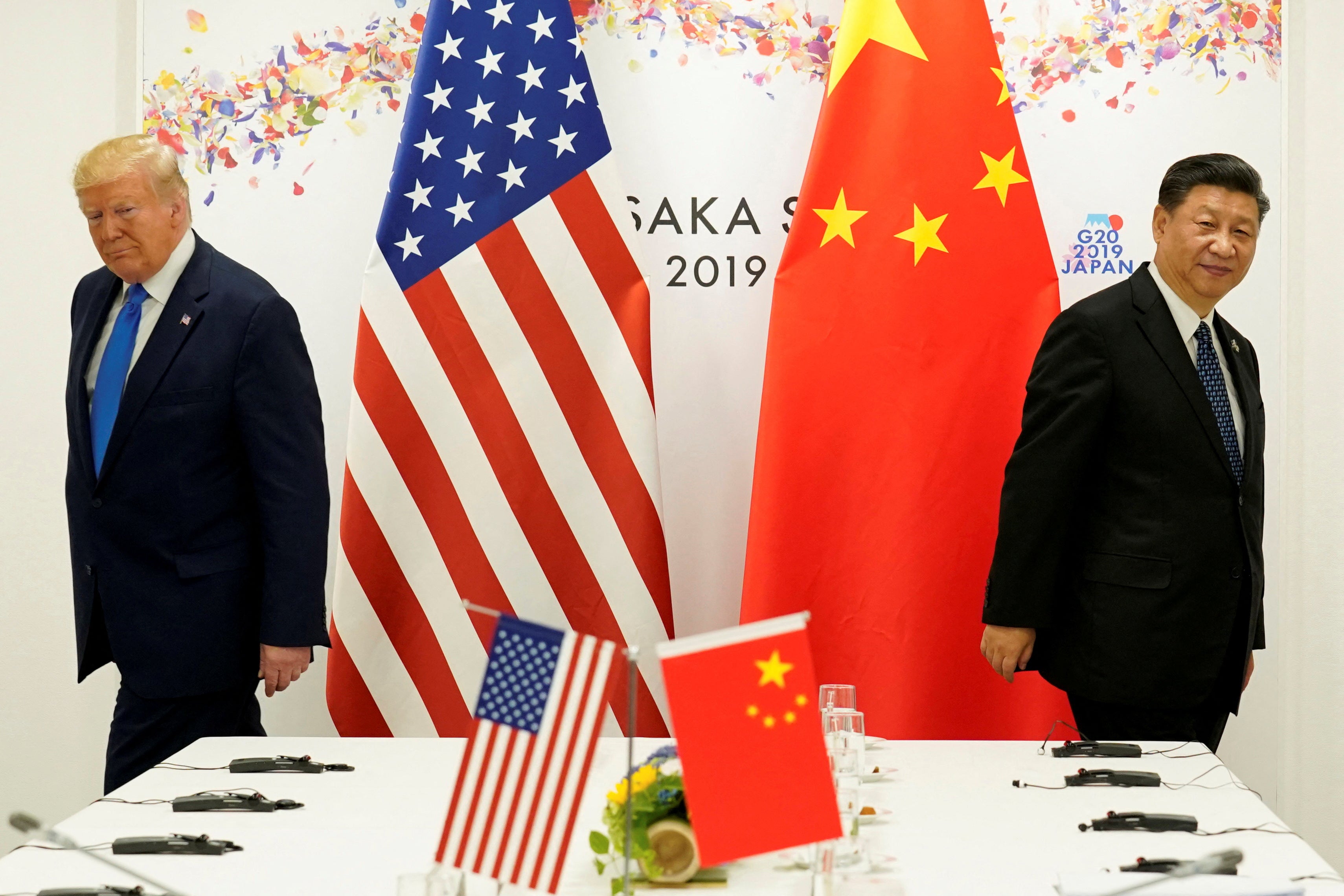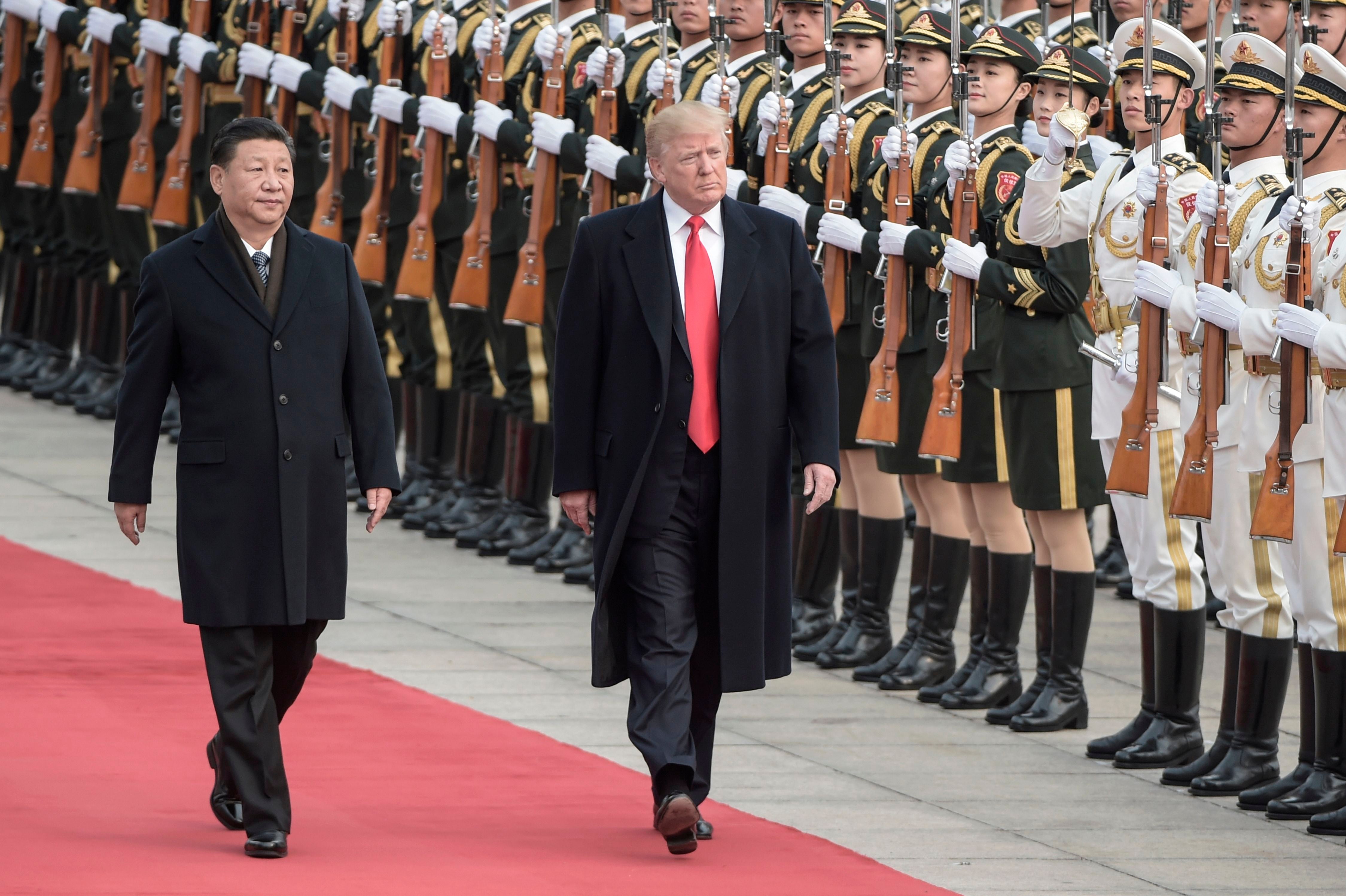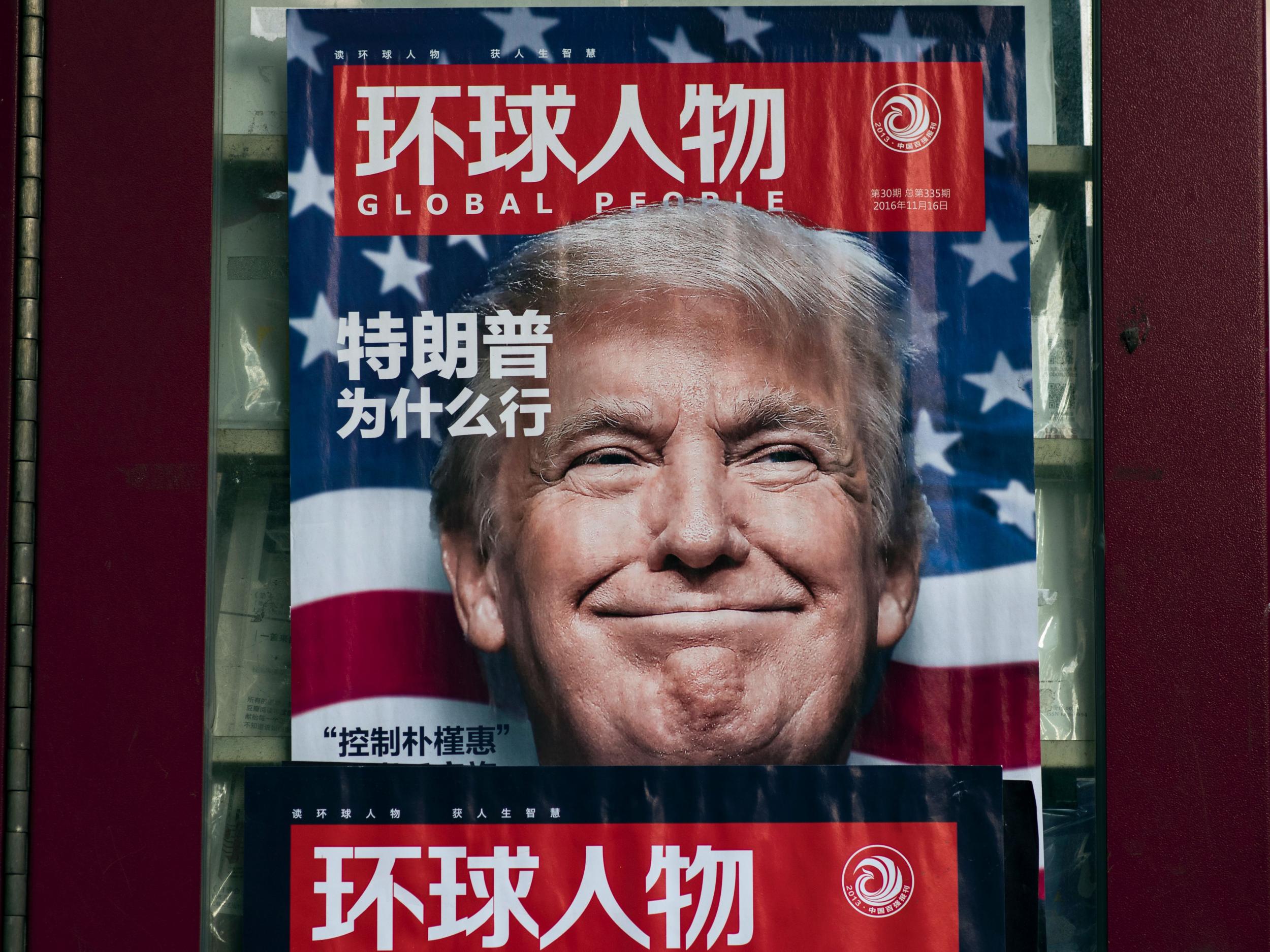When Joe Biden defeated Donald Trump in 2020 it took China almost a week to issue an official message to congratulate him, as the outgoing president challenged the election results. This time, as Mr Trump won a convincing victory to seal his return to the White House, the Chinese foreign ministry was far prompter in its response.
President Xi Jinping and president-elect Trump have already spoken over a phone call, according to reports. But the two leaders, who have a history of terse exchanges and strategic rivalry, are yet to announce their first interaction since Mr Trump’s return.
With the change in administration in the US, global leaders are closely watching how the incoming president navigates the China question, as how things play out between the two largest economies will have ripple effects not only for America but for the rest of the world.
“I think China would be slightly relieved if not celebrating Trump’s victory,” Derek Grossman, a senior defence analyst at the RAND think tank, told The Independent.
“The main difference between Harris and Trump is that Trump at least offers the opportunity for some sort of grand strategic bargain. Whereas Harris wouldn’t offer that opportunity at all and would have continued the Biden administration’s approach in the Indo Pacific, which is to strengthen alliances and partnerships to counter China right now,” he said.
More economically vulnerable now, China is bracing for an even bigger trade war as the Republican leader has threatened to slap blanket 60 per cent tariffs on all Chinese exports to the US if he lives up to his campaign promises.

During his first presidency, Mr Trump engaged China in a trade war, imposing tariffs on hundreds of billions of dollars’ worth of Chinese imports, sparking a tit-for-tat chain of reaction. The tariffs to punish China for alleged unfair practices and pressure it to make economic reforms disrupted global markets and led to tensions that went beyond trade, affecting diplomatic relations.
The tariffs, which could decimate the trade between the two countries, would be a significant blow to China’s ailing economy which is suffering from high youth unemployment, a lengthy property slump, and government debt.
“Beijing is particularly concerned about a potential revival of the trade war under Trump, especially given China’s current internal economic challenges, which leave it with less capacity to respond than during Trump’s first term,” Tong Zhao, senior fellow at the Carnegie Endowment for International Peace, told The Independent.
Despite fears of renewed tariffs, Beijing believes Mr Trump’s tough trade policies would be deeply unpopular with US allies and partners in Europe and the Asia-Pacific as well, “creating an opportunity for China to strengthen ties with these countries”, he said.

A 60 per cent tariff on Chinese imports could reduce China’s expected economic growth by 2.5 percentage points, or about half, according to a Union Bank of Switzerland (UBS) analysis published earlier this year.
“This concern may prompt Beijing to delay or scale back anticipated economic stimulus packages in the short term, conserving policy tools for when Trump assumes office,” Mr Zhao underscored.
Beijing-based commentator Einar Tangen, a senior fellow at Chinese think tank, Taihe Institute, emphasised the financial risks of Mr Trump’s “reshoring” agenda, which aims to revive American manufacturing by bringing industries back from overseas.
He noted that the high cost of domestic production, including “higher wages, development, and logistics costs”, posed a formidable challenge to sustaining such a policy.
“The result will be 8 to 10 trillion dollars added to the US debt pile in a futile effort to hold back the existing economic tide,” he said.
The tariffs on $360bn of Chinese products brought Beijing to the negotiating table after nearly two years. The two countries signed a trade deal in 2020 in which China committed to increase its purchases of American goods and services, enhance protections for intellectual property, and improve market access for American firms.

The so-called landmark Phase One trade deal that would have seen China purchase an additional $200bn worth of American goods over two years did not materialise as Covid-19 pandemic disrupted trade flows.
“Trump has been a little frustrated that the US-China trade deal that he helped create didn’t really take off because of Covid. But then also he received a lot of criticism that it wasn’t really in the US’s interest in terms of what he signed with Beijing,” said Mr Grossman.
“A second trade deal and stronger one is on the table during the second term,” he added. China could be easily brought back to the negotiating table due its weak economic situation, he said.
Taiwan, which China claims as a breakaway province, remains another major issue Beijing will need to negotiate with the Trump government when it assumes power.
For decades, Washington has cautiously followed a bipartisan policy of strategic ambiguity on Taiwan to deter China from invading. The US is Taiwan’s most important arms supplier and the self governing island has closely watched the election play out.

California-based Grossman said Mr Trump would be expected to continue the Indo-Pacific strategy laid out under his first administration – which was built upon rather than scrapped under the Biden administration – to strengthen alliances with countries like Japan, South Korea, India, and Australia as part of a broader strategy to counterbalance China’s regional influence.
But Mr Trump’s transactional approach to relationships with countries and territories that rely on the US military for their defence will raise concern in the region at a time when the threat of aggressive moves by China has never been greater.
On the campaign trail, Mr Trump said “Taiwan should pay us for defence” as America has been “no different than an insurance company”.
“I worry about Taiwan, I worry about our position in the South China Sea and our support to allies and partners because this potentially going a radical departure from what we’ve seen across the last several decades,” Mr Grossman said.
Beijing would be expected to “maintain red lines around its security and territorial integrity” regardless of who won the US election, Mr Tangen suggested, while China is likely to take a more measured approach in response to Trump tariffs than in his first administration.
Mr Xi’s congratulatory message may have been quicker this time round but it was also noticeably more subdued than his earlier one to Mr Trump in November 2016. He urged Washington and Beijing to find the “right way to get along in the new era” to benefit both countries and the wider world.
“History teaches that China and the United States gain from cooperation and lose from confrontation,” Mr Xi said, according to state media Xinhua, noting that “a stable, sound and sustainable China-US relationship serves the two countries’ shared interests”.
Having previously managed relations with Mr Trump during his first term, this scenario is not entirely uncharted territory for Taiwan, Sana Hashmi, a Taipei-based foreign relations expert, says. But it is Mr Trump’s transactional approach that worries Taipei leaders.
“Taiwan has more reason to be concerned in this regard, especially considering Biden’s assertions about defending Taiwan, which were later walked back by the White House – but they still made an impact,” she says.
“Trump, on the other hand, did not make such commitments; instead, he accused Taiwan of taking advantage of the US semiconductor industry.”
If Trump shows weaker commitment to defending Taiwan than his predecessor, Mr Zhao says Beijing could seek greater concessions from Washington on the issue, using a mix of “positive incentives and coercive pressure” to push the US to scale back its military and political support for the island.







